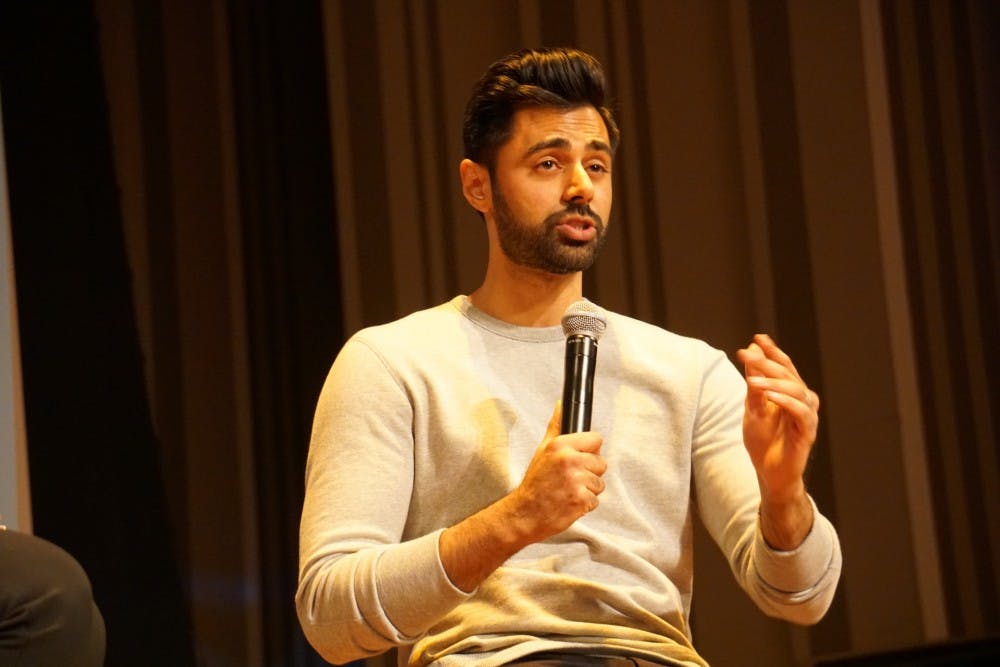As Hasan Minhaj walked onto the stage of Irvine Auditorium, there was a hint of surprise in his eyes that not even his wide smile could conceal: the hyper–enthusiastic shriek of the audience was thunderous. The event, organized by SPEC Connaissance, was sold out. More than 1,200 students and guests attended the preview for Minhaj’s upcoming Netflix talk show, followed by a Q&A session moderated by Dr. Fariha Khan, associate director of the Asian American Studies Program at Penn.
Hasan is a comedian, an actor, and a Senior Correspondent on The Daily Show. He was also the entertainer at the 2017 White House Correspondents' Dinner and was featured on Foreign Policy' 2017 Global reThinkers list. He's known for his fierce political satire—which mostly draws attention to racial discrimination—and for rising to fame around the time when Trump implemented the first travel ban on Muslims.
Starting this fall, when he is set to leave The Daily Show, Minhaj will be the first Indian–American frontman of a U.S. weekly comedy show—which, according to The Hollywood Reporter, will provide him with an opportunity “to explore the modern cultural and political landscapes with depth and sincerity.”
And the preview was anything but shallow. Though Minhaj’s monologue mostly consisted of witty jokes which never failed to prompt some enthusiastic laughter, it was also peppered with moments of meaningful silence. His humor, as expected, circled around the systemic oppression of Muslims and the ridiculousness of right–wing propaganda, but also touched upon issues of feminism, race, and gun control. Naturally, Minhaj threw some direct punches at Trump, a standout being, “The only thing he likes more than going on escalators is going down on porn stars.”
The comedian emphasized the absurdity of right–wing media by gathering newsreels from Fox News and related outlets, all of which used the same words to describe first white supremacists, then Muslim refugees. The former are called “lone–wolves” (“twelve singular wolves in recent memory"), while the latter are demonized with the phrase “it only takes one.”
As Minhaj put it, apart from the fact that there are “more Golden Girls than terrorist refugees” in the U.S.—only three out of hundreds of thousands have been involved in terrorist activity—the chances of being killed by a terrorist are lower than those of “Kanye West ditching his own concert.”
His use of visual aid was particularly effective. Through graphs, newsreels, and clever comparisons, he managed to put his jokes into perspective. Though recordings weren't allowed during the event, there was one image which seemed to have a particularly powerful effect on the audience. White, woman, black in America, Muslim—these were the four entries on a list ordered by “difficulty of life.”
During the Q&A session, one student drew attention to what she considered a lack of intersectional feminism in Minhaj’s work, to which he responded by expressing his desire to add a final entry to the list: “a black woman wearing a hijab.” Naturally, the audience shrieked, partly supportive, but partly uncomfortable.
It's exactly this sense of discomfort that renders Minhaj’s work so poignant. Although his jokes were received with enthusiasm, the students who managed to ask him questions thanked him for his work not in comedy, but in education, and the lucky guests who managed to secure a ticket enjoyed both 90 minutes of laughs and a better understanding of political issues.

